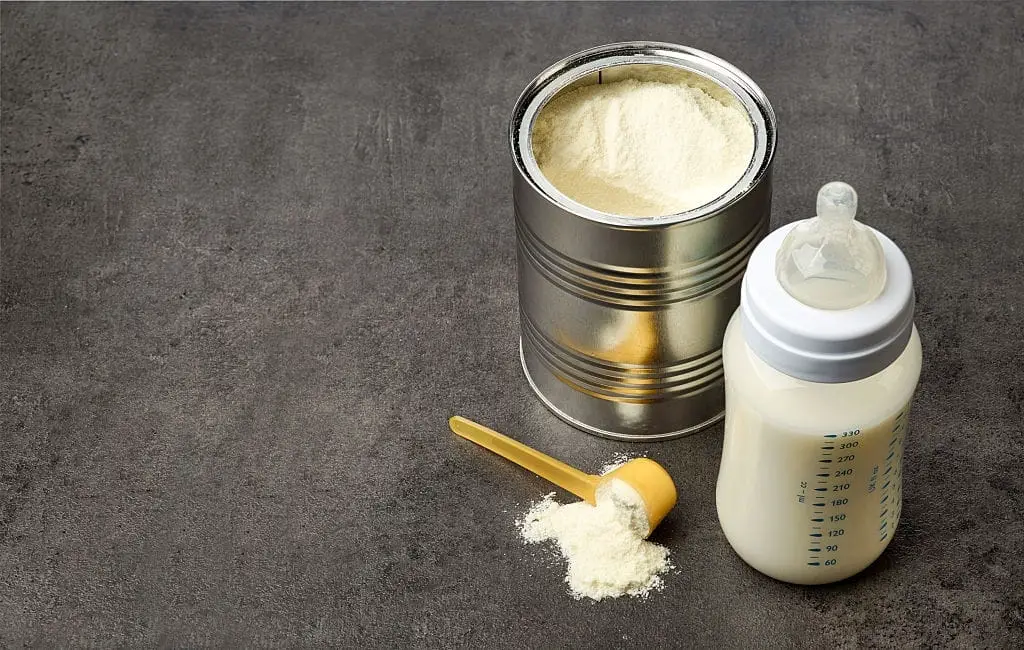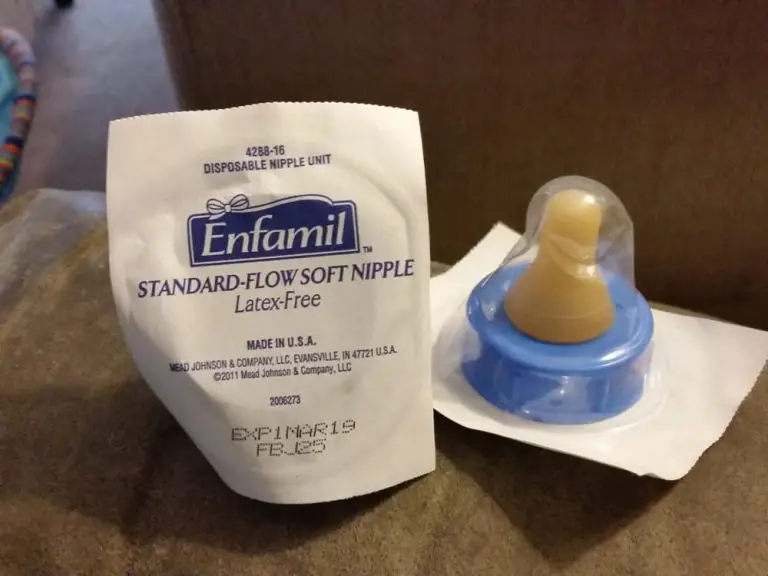
Formula milk is a great substitute for breast milk in emergencies. Formula milk is high in nutrients and can keep babies full longer than breast milk.
However, many parents still wonder about how much the age-appropriate formula for children per week is appropriate and provides the best health benefits.
Is drinking too much formula or completely using it a safe solution for children in the long run? How many cans of formula per month?
Let’s discuss more this and the standard levels governing the number of cans of formula by month of age.
1. How Many Cans Of Formula Per Month? Which Number Is Correct?
On the market today, there are many types of formula milk with different nutritional content. Most formula milk products clearly state the nutritional ingredients on the box. This can allow parents to know the ingredients and nutrients to use a reasonable amount of milk with the needs of children according to each age.
For example, the manufacturer may recommend that children under 6 months of age use only 3 tablespoons of milk per day, 1-year-olds use 6 tablespoons of milk or children over 2 years of age use 12 tablespoons of milk per day.
So you can use the amount of milk according to the clinical studies from the manufacturer on the box.
With each age, the baby’s need for milk is different. For example, the infant is exclusively breastfed or formula-fed, babies from 6 months of age can start eating more fruit or powdered foods. Children from 1 to 2 years old can add a variety of foods, so their need for milk will also be significantly reduced.
If you want to know the most accurate how many cans of formula per month is best for your baby, you should learn about the amount of milk by age that children usually consume to have a healthy body.
[su_table]
| Month | Amount of milk/feeding | Feeding times/day | Cans of milk/month |
| 1 | 35-60ml | 6-8 | 6 |
| 2 | 60-90ml | 5-7 | 6-7 |
| 3 | 60-120ml | 5-6 | 7-8 |
| 4 | 90-120ml | 5-6 | 8-9 |
| 5 | 90-120ml | 5-6 | 9-10 |
| 6 | 120-180ml | 5 | 10 |
| 7 | 180-220ml | 5 | 10 |
| 8 | 200-240ml | 4 | 11 |
| 9 | 240 ml | 4 | 11 |
| 10 | 240 ml | 4 | 11 |
| 11 | 240 ml | 4 | 11-12 |
| 12 | 250 ml | 4 | 11-12 |
[/su_table]
2. Is Drinking More Harmful To Children’s Health?
One of the questions asked by many parents is whether their child can drink more than the standard number of cans of milk, which is harmful to children’s health.
As you know, infant formula is the only option for mothers who cannot breastfeed or do not like to breastfeed.
Formula milk provides babies with the nutrients they need to grow. They act as a substitute for breast milk. So formula-fed babies can be healthy and there’s no harm in it.
Each child’s milk needs are different, it depends on the child’s health status and ability to absorb nutrients. So, your child can drink more than the above standard and you do not need to worry too much about this as long as your child is healthy and developing normal parameters.
However, a wise choice is not to use the formula to completely replace breast milk. You should only combine supplements with breast milk to ensure that your baby has enough nutrients if breast milk cannot provide them.
Most of us know and understand the importance of breast milk in protecting babies from common diseases in babies.
Another note if your child is already showing signs of overweight or obesity, you should only allow your child to use the recommended amount of milk to avoid abuse leading to negative health effects because formula often contains a very high nutritional content.
3. Conclude
The need for milk at each age of the child is different depending on whether it is the main source of nutrition or not. Formula milk is a good nutritional choice for babies but is not the best source of nutrition to completely replace breast milk.
You should breastfeed your baby exclusively for the first 6 months or try to maintain breast milk for the first 6 months with a combination of formula.
Children who drink too much formula can also cause some harmful effects such as being overweight or obese, which can affect their health. Therefore, each parent should consider the amount of milk appropriate to the age, physical condition, and actual needs of the child in each stage.

Hi, This is Emma Baster; As a mom, I spend my free time caring for my kids. I’ve read a lot on the Internet to improve my childcare skill and bring the best to my kids. Eruditemommy shares my knowledge and experience through helpful posts. I hope you enjoy them!






